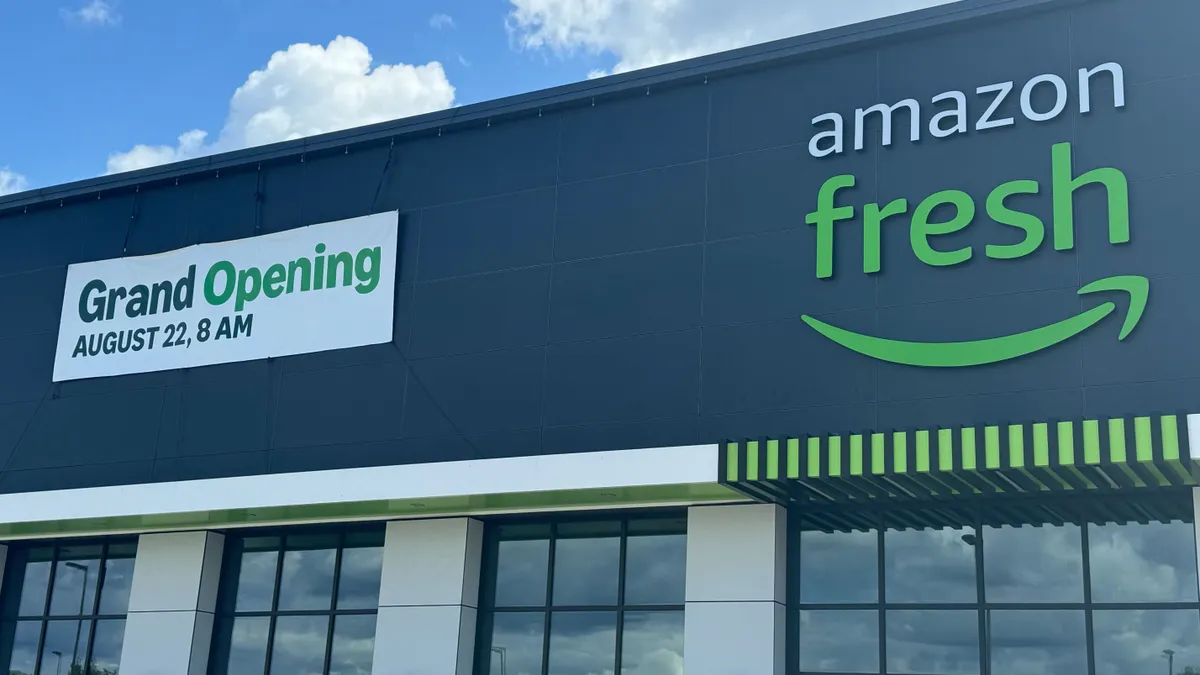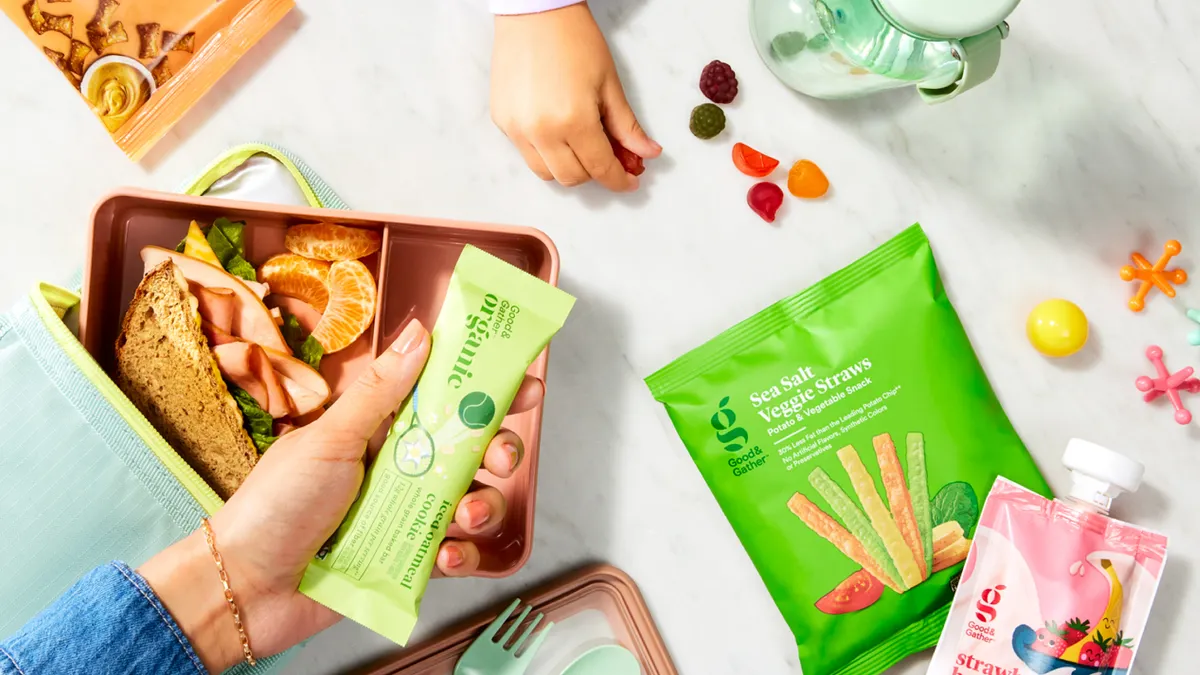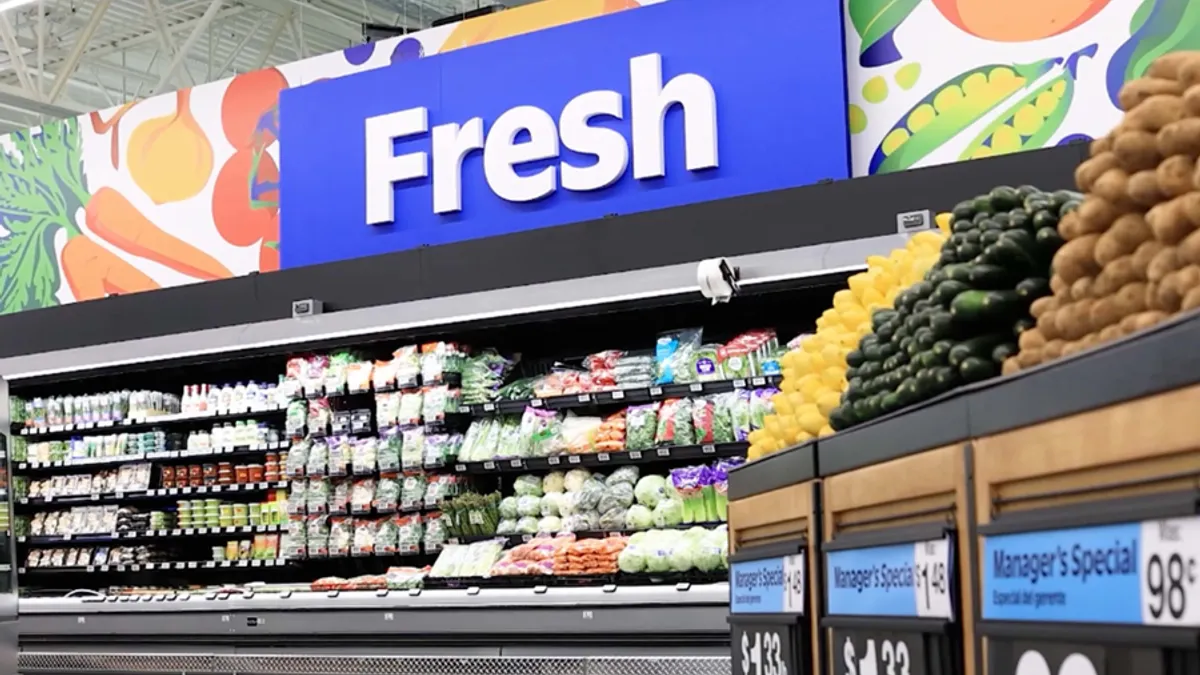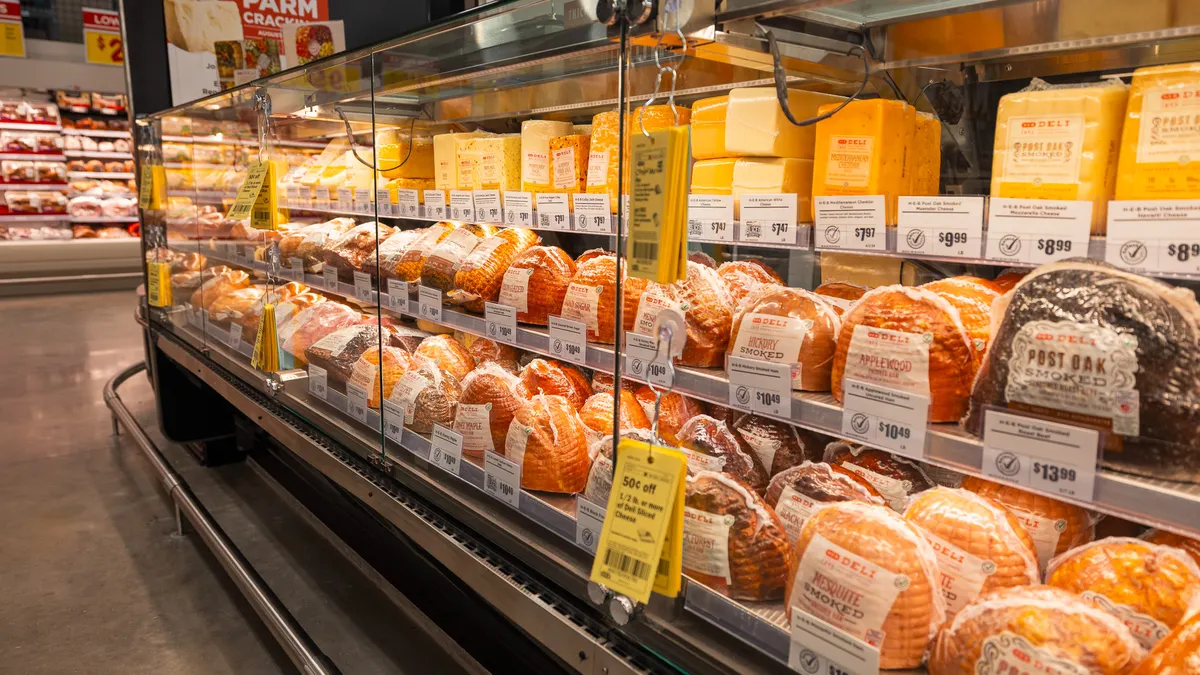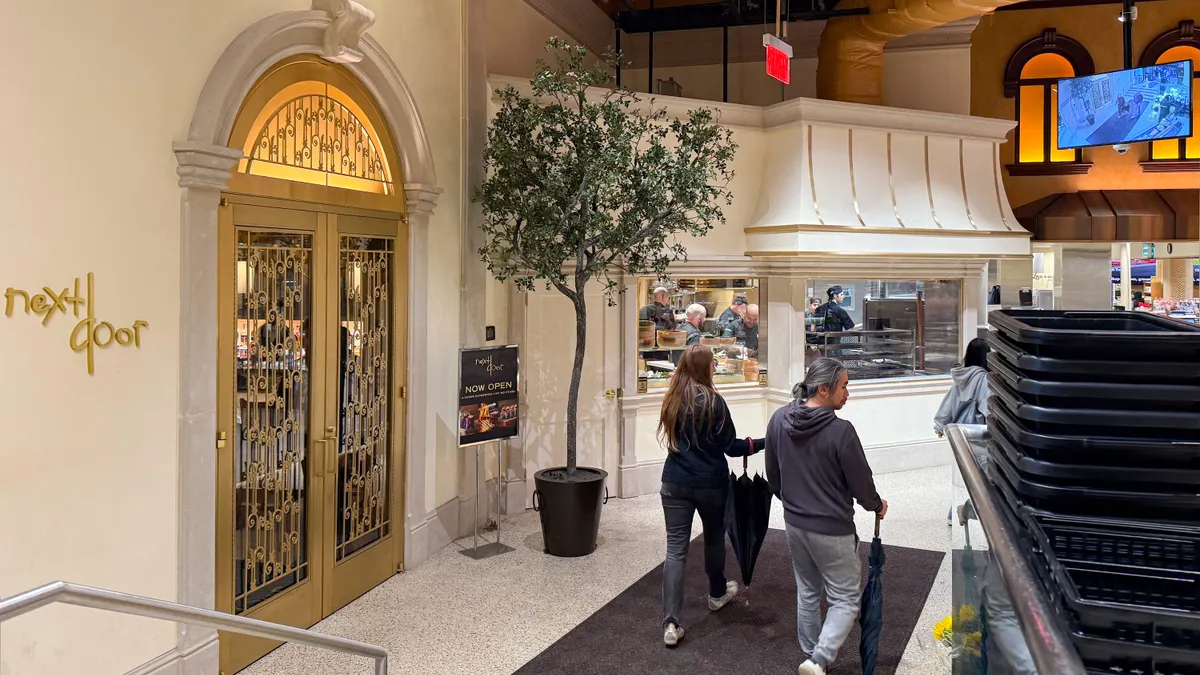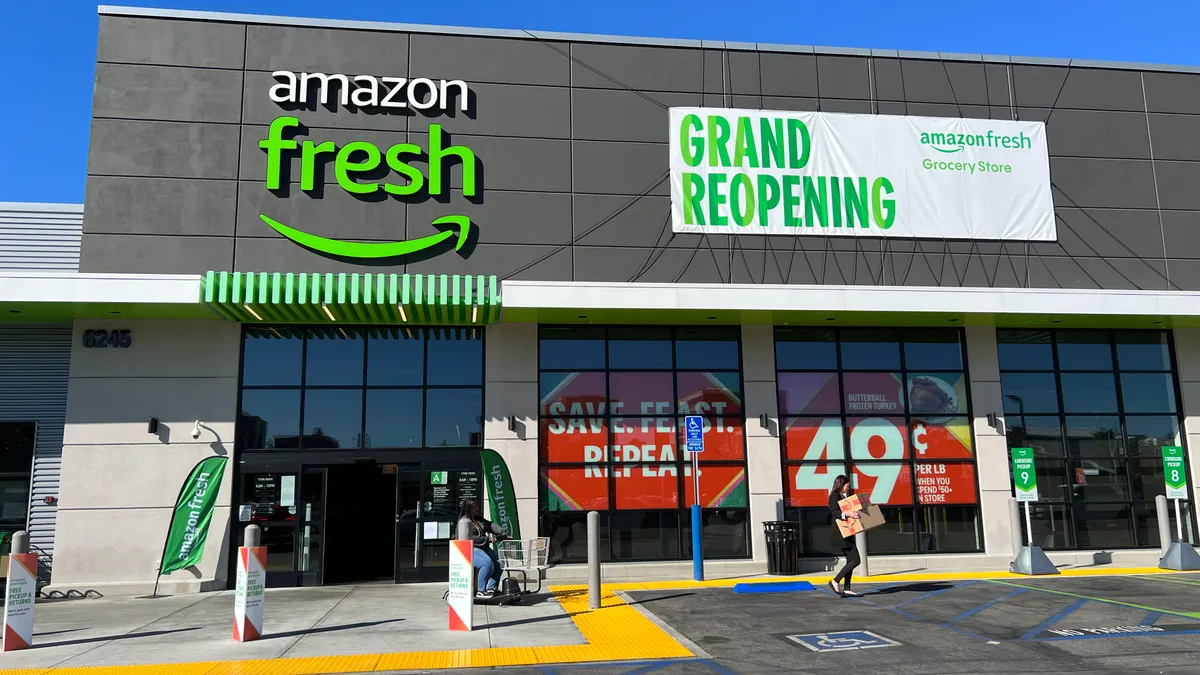As consumers stocked up their pantries during the onset of the pandemic in March, few companies came to symbolize the unprecedented run on food staples as much as Del Monte Foods.
The demand for its products, the strongest Del Monte had seen in more than a decade, eroded the company's inventory levels so fast and for such a sustained period of time that it started to run low on many of its canned vegetable and tomato offerings.
Greg Longstreet, Del Monte’s CEO, and executives at Del Monte knew they had little time to waste with a finite growing period and its important holiday season fast approaching, so they moved swiftly to work with farmers to plant more crops and expand the duration in which they were grown.
"It's our Super Bowl. This Thanksgiving-Christmas time frame for us in our categories with our products that are so entrenched in home meal and holiday meal preparations, this is our time. It's a big event for us the next couple months. It's our time to really connect with consumers and reengage with consumers."

Greg Longstreet
CEO, Del Monte Foods
The moves paid off, with Del Monte catching up with demand while building a safety reserve that should allow it to meet consumption expected to outpace historical levels until at least the spring. In a typical holiday season, Del Monte experiences a 70% jump in sales compared to the rest of the year — so far in 2020 it has already seen a 100% lift in sales.
"It's our Super Bowl. This Thanksgiving-Christmas time frame for us in our categories with our products that are so entrenched in home meal and holiday meal preparations, this is our time," Longstreet said. "It’s a big event for us the next couple months. It’s our time to really connect with consumers and reengage with consumers.”
Del Monte, whose produces include its signature canned vegetables and fruits, Contadina tomato products and College Inn broths and stocks, has doubled-down on reaching customers digitally and through social media to promote its products and provide recipes on how to prepare dishes with them.
It has worked with online influencers to engage with younger cooks and partnered with chefs such as Laura Vitale to create dishes. Del Monte also joined forces with McCormick & Co. and its French's Crispy Fried Onions brand, as well as Campbell Soup’s Cream of Mushroom soup, to tout holiday recipes using both of their ingredients like green bean casserole or skillet corn bake that retailers later promoted online and in stores.
"What it really is to us is it's creating a relationship with this next generation of consumers. It's becoming a stable holiday favorite and being a part of the new tradition that's being created right now," Longstreet said. "If we can be there and these new consumers can gain confidence preparing our products and serving our products to their friends and family and have good experiences, that’s a lifetime relationship we can establish right now. ... It’s why we’re investing in all these efforts.”
A 'boom time' for CPGs
For food companies, the unusual holiday season, complicated by the ongoing coronavirus pandemic, is providing an invaluable opportunity for them to establish a connection with consumers who are looking for ideas of what to make or need help carrying it out.
IRI noted that for Thanksgiving, 68% of people said they will celebrate alone or with a smaller gathering — a median of five people will attend compared to eight in 2019 — while for the December holidays it stood at 55%.
The smaller gatherings are likely to change what consumers buy. In the case of turkey, for example, indications are that people will buy smaller birds, or turn to certain parts of the turkey like a breast that can be prepared more easily.
"The CPGs are in a better position than they were in March, April. A lot of them have been preparing for this," said Krishnakumar Davey, president of strategic analytics at IRI. "This will give another lift to CPGs for those focused on in-home. It's a boom time for them. They are going to have another surge in demand than what they would typically do."
IRI said there are opportunities for food manufacturers to boost sales by promoting their products as giftable — most notably in gourmet and seasonal items — and touting holiday essentials for those struggling financially or premium items for individuals looking to indulge. They also could cross-promote their products with complementary categories, such as cooking tools or tableware and offer consumers help online through recipes, tips, entertainment ideas and budgeting suggestions.
Hormel Foods said a challenge for the company leading up to the holiday season was that many consumers were watching and tracking the rate of the coronavirus infections in areas they were considering traveling to to visit friends and family.
"The biggest thing is consumers are saying it's going to be different, and honestly they are still trying to figure that out," Heather Vossler, director of consumer insights and innovation at Hormel, said in early November. "That makes it a little bit harder in terms of exactly what specifically they're looking for because a lot of consumers are still not sure."
For Hormel, the CPG manufacturer said a diverse mix of product offerings is key this year depending on the individual and where they are cooking, how many people they are preparing a meal for and the person's confidence in their kitchen skills. In the case of its Jennie-O turkey line, Hormel is promoting its traditional bird and items geared toward novices like precut breasts ready to cook and fully cooked, ready-to-serve products.
Hormel, which has a turkey hotline staffed by chefs, expects the service to get more calls than normal this Thanksgiving due to a spike in first-time cooks and more people tackling the holiday on their own.
"People always want to have confidence in what they are cooking," said Dave Anderko, innovation manager at Hormel. The purpose of the turkey hotline "is helping you cook so you can feel confident and then the hope is that builds a long-term relationship with Jennie-O."
Fear of failure
Some companies are even tapping into that uncertainty. A study conducted by Campbell Soup found 65% of consumers will celebrate Thanksgiving in their own home this year, with one in five being first-time hosts. The soup and snack giant found they are feeling the pressure, with 37% feeling "fairly" or "extremely" nervous about cooking for the holidays, with 66% worried about an "epic cooking fail."
To help, the New Jersey food manufacturer is launching DinnerInsurance.com where first time hosts can find "easy, no-fail" recipes such as Campbell’s Classic Green Bean Casserole, Pepperidge Farm Savory Stuffing and Swanson Double Stock Mashed Potatoes. For residents living in Manhattan, if the side dish fails, they will get a gourmet replacement delivered to their door on Thanksgiving as part of the Dinner Insurance pilot program.
At PepsiCo's Frito-Lay division, chief customer officer Mike Del Pozzo said the company is producing an extra 1.5 million cases, a 5% to 10% increase from a year ago, of its Cheetos, Doritos, Fritos and other salty offerings for what it expects will be "elevated demand" between now and the Super Bowl in early February.
Del Pozzo said Frito-Lay is not only benefiting from the fact that consumers are spending more time snacking at home but also the way in which they plan to gather this holiday season.
In the past, a person attending a large festivity might bring a side or beverage to the event while someone else would be responsible for the chips. With smaller get-togethers, and more of them taking place, additional people will need to buy their own snacks and likely will want a variety of choices when they do.
"We think the net of that is very positive on the category," Del Pozzo said.
Similar to what CPGs and retailers did leading up to Halloween, some grocery stores started putting up Thanksgiving displays earlier than usual in an effort to capture sales during a longer period.
Dawn Buzynski, director of strategic communications at Hy-Vee, said the 275-store Midwest grocer assessed how consumers celebrated Easter and Mother's Day during the early days of the coronavirus pandemic and found they purchased smaller items for their less-populated gatherings — buying habits that helped influence the types of products it is carrying for Thanksgiving.
In addition to loading its meat cases with a larger amount of smaller turkeys and hams, Hy-Vee is preparing to sell more of its premade holiday meals that serve two or four people compared to the eight or 12-person offerings popular in the past.
"We are preparing that customers are going to not have that big holiday celebration with their extended family, and we have adapted what we're offering them," Buzynski said.
Davey said retailers should make the most of in-store displays and utilize online platforms to promote their holiday marketing messages with consumers. They also can capture a larger chunk of sales by looking for unique opportunities such as partnering with local restaurants for meal fulfillment, offering their own restaurant-style meals and promoting giftable food and drinks and “build-your-own-basket” items.
The Consumer Brands Association estimated CPG purchases across all categories will be up between 9.5% and 11.5% for the season, which includes the months of November and December. With consumer spending expected to increase this season, that could bode well for retailers and CPG manufacturers alike. In large format stores, baking, liquor, meat and gifts are big drivers of year-end holiday sales, according to IRI, and many of these categories could benefit even more this time around.
"I expect this holiday season to be a lot more upbeat for food manufacturers," Davey said. "There is a great opportunity for you in the next three months — seize it, build your share. Holidays are generally a higher time in general but this year it's going to be even more."








